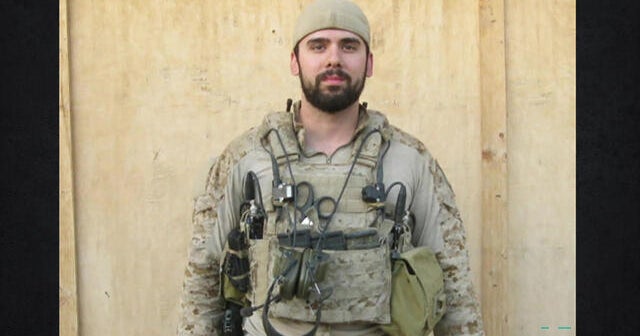Unseen Battles: The Silent Struggles of a Navy SEAL
When we think about Navy SEALs, images of heroism, bravery, and incredible physical prowess often come to mind. These elite warriors are celebrated for their exceptional training and combat skills, but what many overlook are the unseen battles they face long after the applause fades. The psychological challenges that Navy SEALs navigate in their post-service lives are profound, often resulting in invisible wounds that can be just as debilitating as any physical injury. This article delves into these silent struggles, shedding light on the mental health issues that many veterans grapple with and exploring the resources available for healing.
The Weight of Service
Navy SEALs undergo some of the most rigorous training in the military, designed to prepare them for high-stakes missions. They learn to function under extreme pressure, make split-second decisions, and confront life-threatening situations. However, this intense training also creates a unique set of psychological challenges. The emotional toll of witnessing trauma, losing comrades, and the constant threat of danger can lead to serious mental health issues.
For many SEALs, the transition back to civilian life is fraught with difficulties. The skills that once defined their identities can feel inadequate in a world that often doesn’t understand the complexities of their experiences. This disconnect can lead to feelings of isolation, depression, anxiety, and post-traumatic stress disorder (PTSD).
The Hidden Impact of PTSD
PTSD is one of the most common psychological issues faced by veterans, including Navy SEALs. It can manifest in various ways, such as:
- Intrusive memories or flashbacks of traumatic events
- Avoidance of situations that remind them of the trauma
- Negative changes in mood and thoughts
- Hyperarousal symptoms, such as irritability or difficulty sleeping
SEALs often find it challenging to discuss their experiences, fearing stigma or misunderstanding. The warrior ethos ingrained in them promotes the idea of toughness, which can make it difficult for them to seek help. This leads to a cycle where mental health struggles remain unaddressed, exacerbating their conditions over time.
Personal Stories: Voices from the Shadows
To truly understand the unseen battles faced by Navy SEALs, it’s essential to listen to their stories. Many veterans have bravely shared their experiences, highlighting the internal conflicts they face.
Take the case of Mike, a former SEAL who served multiple tours in combat zones. After returning home, he struggled with intense flashbacks that disrupted his daily life. “I’d be sitting at a restaurant, and suddenly, I was back on the battlefield,” he recalls. “It was like I was trapped in my own mind.” Mike’s story is a poignant reminder that the war doesn’t end when the deployment does.
Another veteran, Sarah, who served in a support role for SEAL teams, shares her experience with anxiety and depression after service. “I felt lost,” she explains. “I had trained for years to be a part of something bigger than myself, and now I was just… here. It felt like I didn’t belong anywhere.” Sarah’s experience illustrates the profound identity crisis that many veterans face.
The Role of Support Networks
Support networks play a crucial role in helping Navy SEALs navigate their mental health challenges. Families, friends, and fellow veterans can provide understanding and camaraderie that is essential for healing. Organizations dedicated to veteran support, like the Navy SEAL Foundation and others, offer resources and programs aimed at addressing these invisible wounds.
Additionally, peer support groups have gained traction as effective means for veterans to share their experiences in a safe environment. Hearing from others who have walked a similar path can foster a sense of belonging and validation, helping to combat feelings of isolation.
Breaking the Stigma: The Importance of Open Dialogue
One of the most significant barriers to addressing mental health issues among Navy SEALs is the stigma surrounding vulnerability. The military culture often emphasizes stoicism and resilience, leading many service members to believe that admitting to struggles is a sign of weakness. Breaking this stigma is essential for encouraging more veterans to seek help.
Public figures, including former military leaders and celebrities, have begun to speak out about their own mental health challenges, paving the way for more open conversations. By normalizing discussions about mental health, we can create an environment where veterans feel safe to seek the support they need.
Strategies for Coping and Healing
For Navy SEALs and other veterans, coping with mental health challenges requires a multifaceted approach. Here are some effective strategies:
- Therapy: Engaging in therapy, particularly cognitive-behavioral therapy (CBT), can help veterans process their experiences and develop coping mechanisms.
- Mindfulness and Meditation: Practices that promote mindfulness can help in managing anxiety and improving emotional regulation.
- Physical Activity: Regular exercise is known to boost mood and reduce symptoms of depression and anxiety.
- Community Engagement: Involvement in community service or veteran organizations can provide a sense of purpose and connection.
Conclusion: Hope on the Horizon
The unseen battles faced by Navy SEALs are indeed significant, but it’s important to remember that healing is possible. By fostering open dialogue, creating supportive networks, and encouraging the use of mental health resources, we can help these brave individuals reclaim their lives after service. The journey may be long and fraught with challenges, but with support and understanding, Navy SEALs can navigate their silent struggles and emerge stronger on the other side.
As society continues to recognize and address the mental health challenges faced by veterans, we move closer to ensuring that no one has to battle their demons alone. By standing together and advocating for mental health awareness, we can honor the sacrifices of those who serve and help them find peace in their post-service lives.
See more WebMD Network



